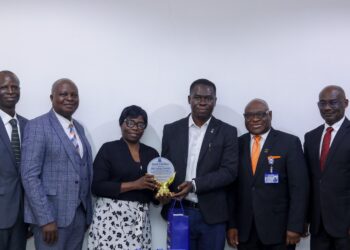The United Nations World Food Programme (WFP) has welcomed a contribution of JPY 400 million (approximately US$2.7 million) from the Government of Japan. This vital funding will enable WFP to provide school meals in Sudan, supporting children’s access to education while improving attendance and learning outcomes.
“This generous contribution from the Government of Japan comes at a critical time when schools are reopening in Sudan,” said Laurent Bukera, WFP Sudan Country Director and Representative. “School meals will help vulnerable children resume their education and increase their success rate in school. We are deeply grateful to the Government and people of Japan for their continued solidarity with the people of Sudan.”
The JPY 400 million contribution will allow WFP to provide meals to children in Sudan, ensuring that students have access to food while they study. School meals have been shown to improve both classroom participation and retention rates.
“The protracted war in Sudan is depriving children of their basic right to go to school and enjoy education. This is, indeed, a tragic loss not only for them but for the future of Sudan as a whole,” said Mizuuchi Kentaro, Chargé d’Affaires of Japan to Sudan.
“We hope that the school meals provided through cooperation between WFP and Japan will encourage children to gain access to food and education simultaneously,” he added.
Since 2022, Japan’s total support to WFP operations in Sudan has reached US$21 million, underscoring the country’s strong humanitarian commitment. The latest contribution accounts for 13 percent of WFP’s funding requirements for its school meals programme in Sudan over the next six months.
Despite Japan’s generous contribution, WFP still requires US$14.8 million to sustain school meal programmes in Sudan between October 2025 and March 2026.
Sudan’s ongoing conflict has triggered the world’s largest hunger crisis, with around 25 million people facing acute food insecurity, including 638,000 people in catastrophic conditions. As fighting has eased in parts of southern and central Sudan, investment in early recovery — such as helping children return to school — is seen as essential for rebuilding communities.
About the World Food Programme
The United Nations World Food Programme is the world’s largest humanitarian organization, saving lives in emergencies and using food assistance to pave a pathway toward peace, stability, and prosperity for people recovering from conflict, disasters, and the effects of climate change.
Follow WFP on X (formerly Twitter): @wfp_media, @wfp_sudan


















































































 EduTimes Africa, a product of Education Times Africa, is a magazine publication that aims to lend its support to close the yawning gap in Africa's educational development.
EduTimes Africa, a product of Education Times Africa, is a magazine publication that aims to lend its support to close the yawning gap in Africa's educational development.